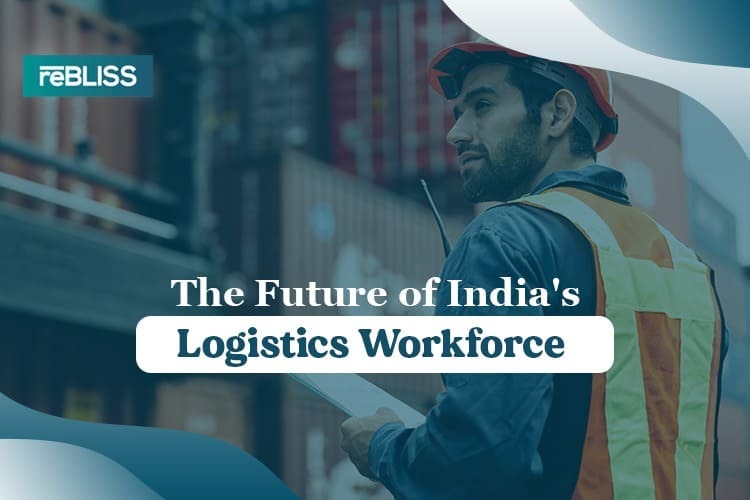





Due to the development of new technologies and changing policies, logistics businesses in India are undergoing a revolution. As a result, India’s quest to become a developed nation by 2047 is very much on. Especially after a pandemic, the technologies and policies help businesses grow again. Businesses understand the role of hard-working employees. The changes induced due to the pandemic bring focus back on the logistics workforce. Logistics businesses bring strategies in the digital era to attract, retain, develop, and motivate workers. However, logistics businesses need to understand the challenges and needs of the workforce to succeed in their strategies.
Challenges of Workforce in the Logistics Industry
Before the pandemic, logistics companies used data but after it, the use of technology exceeded. Business depends more on Big Data, Autonomous technology, the cloud, the Internet of Things, robotics, and automated solutions that streamline the complex interaction between the people and the products they wish to purchase. The increased reliance on logistics technologies affected employment in various sectors, it improved productivity but made some workers’ roles old-fashioned. Due to the development of new technologies, logistics companies now require a more complex set of skills, contributing to the growing skills shortage. In the logistics sector, you always see a distinctly dominant image, and it is still the same. Men are more in numbers than women in India’s logistics industry. As per the Gartner survey from 2021, 41% of the number of women are in the supply chain industry. Also, they hold only 15% of executive roles in the supply chain segment. So, it makes logistics face a labour shortage.
These are some challenges logistics and its workforce are facing. What about the future of this growing business and its workforce? Here are some points -
Digitalisation in Logistics
The logistics sector in India is going to change its business strategies due to some significant policy changes such as PM GatiShakti and the National Logistics Policy. These policies are aimed at streamlining their logistics operations and improving efficiency. Moreover, new technologies also revolutionised the logistics process. For instance, the Unified Logistics Interface Platform transforms the way logistics processes are managed, optimising supply chain operations and enhancing transformation.
Upskill Workforce and Enhance Sector Branding
Logistics businesses need to address several challenges and find ways to grow. One of the biggest challenges companies have faced in the past is the low skill level of employees. Boosting employees' skills is crucial for logistics to meet global expectations. For bridging the gap between advancement and employee skills, logistics can add comprehensive employee training and initiatives. This helps improve industry-specific practice and gives critical abilities to employees. With that, some other factors also become challenges for logistics such as limited sector and poor employer branding. For a positive result, in the upcoming days, employer branding initiatives need to come. Companies are going to make efforts to improve the sector’s branding, highlight opportunities, and offer a welcoming work culture that attracts new employees.
Create Awareness
An important factor in the logistics industry is creating career and trajectory awareness. There are several employees in logistics, who may be unaware of their career opportunities. That’s why, many logistics companies shift towards educational and outreach programs to teach students, job seekers and professionals about logistics. This helps them attract new employees to their companies. Logistics companies also conduct talent acquisition and retention strategies, such as effective employer branding and targeting recruitment that help attract qualified professionals. Partnering with educational institutions to offer training programs is also helpful in finding the right workforce.
Crucial Role of Work Providing Platform to Access Talent
Having the right workforce to handle different work in logistics is crucial. In the developing market, it’s critical to have the talent as per the work requirement. There are some work-providing platforms that help businesses access different talents. Whether logistics businesses want delivery executives, warehouse workers, cashiers or other employees, all they get using work platforms. Using work-providing platforms, logistics businesses can get a skilled and sustainable workforce.
Conclusion
The logistics business will see exciting opportunities in the future. By addressing challenges and giving more opportunities to employees, logistics companies and their workforce will likely grow. The future of employees in the logistics sector is bright. If you are searching for work in the logistics industry, sign up on reBLISS - a credible work-providing platform.